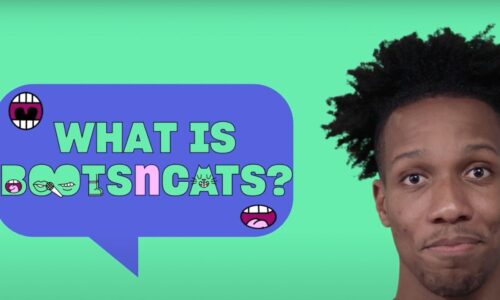Piano Performance Fellow The University of Queensland |
One of the most viscerally exciting scenes in the new biopic about NWA – Straight Outta Compton (named after the band’s 1989 album) – recreates the infamous Detroit concert where the group had apparently been warned by local police not to perform the controversial hit Fuck tha Police, a song considered so inflammatory the FBI felt compelled to issue a veiled warning to the group.
Despite the geographic and temporal distance between 1989 Detroit and 2015 Brisbane, Australia (where I saw the film in a packed advance screening), as the performers worked up the courage to defy the authorities, the onscreen tension was palpably transferred to an electrified audience. The eventual release of middle-finger-brandishing defiance created a tangible rush in the room.
This ability to move a crowd legitimates NWA’s success in terms that are not often acknowledged or recognised: gangsta rap is music. Organised sound, created to excite and entertain (usually a group of) people. To understand it, you have to hear it and for best results, experience it physically.
The aesthetics of gangsta rap are mostly overlooked, however, because of the immense web of social, economic, racial, gendered, political and cultural issues that surround it.
The social and political debate tends to obscure all but the angriest of emotional states embodied in NWA’s music. It’s unfortunate that a more compassionate sense of the deep emotional wellspring of discontent tapped into by many of the songs on Straight Outta Compton is drowned by the hype, controversy, and commodification.
Naturally, however, it’s impossible to fully grasp the significance of the music without first acknowledging contextual issues.
Order, order, order …
Emerging from the de-industrialised urban environment of 1980s South Los Angeles, significantly impacted by the slow death of its middle-class and Reagan-era social policies, members of NWA have always maintained that a form of street reporting defined their lyrical style. Fuck tha Police is essentially a protest against police harassment.
Given the aggressive practices of LA police chief Daryl Gates’ law enforcement approach at the time (essentially a paramilitary response to the spread of crack cocaine in 80s urban environments), a robust artistic response should hardly have been surprising.
Yet Fuck tha Police became exhibit A in the case for moral panic about the state of black male youth across America. It was a win-win situation: social conservatives had evidence of transgression and threat, and NWA had an album that would soon go double platinum, all without a major label, radio airplay (too profane) or significant touring.

A protester raises his hands as he blocks the road in Ferguson, Missouri, in August 2014.
EPA/Alexy Furman
Of course the post-Rodney King trial conflagration of 1992 imbued NWA with a retrospectively-applied prophetic veneer. This has in turn been amplified by recent unrest in contemporary Ferguson and the steady drip-feed of video footage capturing the tragic results of failed police practices across America, a full quarter of a century since the release of Straight Outta Compton.
NWA’s free speech, street reportage angle is of course notoriously problematized by the confrontingly violent, misogynist and homophobic lyrics that come with the package.
So the social and political commentary around NWA and gangsta rap generally is clearly necessary and compelling, not to mention bewilderingly complex.
But the noisy debate obscures and often diminishes the artistic impulse behind songs like Fuck tha Police, ironically extinguishing any chance of hearing the emotional message being communicated beneath the hype.
To start with, some pain might have been avoided (although possibly less money made) if a simple basic fact had been acknowledged from the beginning: Fuck tha Police is meant to be a bit funny.
A gang is with whoever I’m stepping …
The first thing to remember is that “gangsta rap” was not an established term when Straight Outta Compton was created and released – to be sure, gangster-themed music existed – NWA were not the first. But this was a group of young men operating in a hip-hop tradition, rapping about street life (sometimes called reality rap).
One of the most fundamental traits of much hip-hop music is the use of irony or parody, and Fuck tha Police is clearly set up as an ironic parody of the justice system.
The song’s introduction (which isn’t featured in the movie) depicts a humorously inverted scene in which Dr Dre is the presiding judge over a court case where members of the LAPD are on trial. Ice-Cube, MC Ren and Easy-E are the lead prosecutors.

Street memorial to Eazy-E, who died in 1995, aged 31.
Christiaan Triebert
The emcees take turns indicting the police for their unacceptable harassment, at the same time indicting themselves as murderously-inclined wannabe cop-killers – a contradiction that reflects the rich seam of ambivalence and ambiguity running through hip-hop.
To understand gangsta rap in a historical continuum is to recognize the evolution of the thug/gangster personae from the oral traditions of African-American folklore (such as the Badman and the Trickster). The rapping gangster persona was an extension and recontextualization of existing vernacular types, less than a radical new glorification of criminal life (of NWA, only Easy-E had a criminal past).
Back in the courtroom, the defendant is finally found guilty, not of harassment, or abuse of power, but of being a “redneck, white-bread, chicken-shit motherfucker”.
In the end, the policeman is not even deemed worthy of a violent end, and is merely laughed out of court. The mocking tone of this pseudo-conviction was possibly just as genuine an irritant to the collective law and order psyche than the hyperbolic intimations of physical violence.
Lights start flashing behind me …
To be clear, individual lines within Fuck tha Police are profoundly serious (“police think they have the authority to kill a minority”) and violent (“and when I’m finished, it’s gonna be a bloodbath of cops, dying in LA”).

But the song’s courtroom parody frame and the lurid ludicrousness of some aspects of the emcee’s testimonies are signs that raise the whole thing to the level of metaphor rather than literal expression of intention.
This lyrical complexity is typical – ambivalently juxtaposing incontrovertibly violent imagery with artistically sincere poetic aspiration. It also partially accounts for why debates over songs of this sort are never resolved.
One thing is certain though: Fuck tha Police took America by storm not because its youth had been waiting for NWA’s moral support to go out and murder law enforcement officers, but because the song was effective as music. The excessive focus on rhymes results in the neglect of beats, the other crucial component of hip-hop.
It’s therefore worth considering Fuck tha Police as sonic expression, as music. To understand how it works as sound is to acknowledge that it transcends the vulgar and blunt piece of profanity its critics like to paint it as.
I’m a sniper with a hell of a scope …
Hardwired into the DNA of hip-hop is the art of sampling, and the genes of gangsta rap are particularly linked to 1970s funk.
It’s funk’s propulsive rhythmic irresistibility that underpins the entire vibe of Fuck tha Police. Like most rap of this time, it’s based on the most utterly funky bits of the most unbelievably funky music ever created.
Fuck tha Police.
Sampling and looping the grooviest parts of earlier songs is one of the defining features of hip-hop musical culture, a practice that evolved from the earlier DJ practice of alternating between two copies of the same record on a double turntable in order to keep repeating the instrumental breaks that crowds best responded to in street parties.
A whole tradition of making music based on the funkiest and grooviest parts of another genre that was already itself devoted to funk and groove.
Indeed the skill with which a DJ/producer selects, edits and most importantly layers samples is crucial to the aesthetic success of a hip-hop track.
The song opens with a scratch as fanfare, a signal that there’s a DJ in charge. Dr Dre then sets the scene over a funky instrumental break from Marva Whitney’s It’s My Thing:
Sample appears at 1:40.
The cascading drum fills create an improvised feel, and Dre’s deliberate slowing down of the Whitney sample (from the original’s 110 to 102 bpm) creates a slightly chilled vibe that other producers would have likely picked up on – an encyclopaedic knowledge of sample-able breaks is one of the less widely known nerdish qualities hip-hop producers have.
Slowing down the tempo also creates a less disruptive connection with the sample underpinning the rest of the song, Roy Ayer’s The Boogie Back:
Sample appears at 0:12.
Ice-Cube is the first to take the stand (0.31) – the Boogie Back sample kicks in, and there is a discernible change in tempo and feel. While the overall speed of new section is slightly slower (from 102 to 99 bpm), elements of the new sample such as the fast hi-hat actually the create the impression of an increase in speed.
What matters more than the specifics of tempo is that the looped repetition of sample-based hip-hop creates its own sense of propulsion, a groove that is subtly different to that which the original music would have presented.
The simple fact of repeating a musical idea gives it a sense of heft and import it likely didn’t convey in the original, and the mechanically cyclic nature of looping creates its own distinct aesthetic sensation.
So when the pattern and tempo change at 0:31, after a period of tightly controlled and predictable repetition, the effect of changing gears constitutes a distinctly pleasurable aural novelty, as the ear and body take a few milliseconds to resolve the disorientation and adjust to the new groove.
Put in my clip, yo, and this is the sound …
The effective use of contrast in both large and small degrees is a fundamental element of effectively organised music, and Dre’s choice of sample here includes guitar lines in dialogue creating an intertwined horizontal melodic counterpoint to the overwhelmingly vertical percussive rapping and punchy vibe.
A single metallic knife-like sample stabs each downbeat, creating a slightly industrial machine-like quality, appropriately enough sampled from Wilson Pickett’s Get me Back on Time, Engine #9:
Sample appears at 5:14.
The syncopated rhythmic complexity created between the rapping voice and the funk accompaniment is most skilfully exploited by Ice-Cube, and some of his most striking lines are deliberately enhanced by the unexpected dropping-out of the accompaniment (e.g. “Black police showing out for the white cop”).
Virtuosity imparts its own sleek form of aesthetic pleasure, and the skill with which Ice-Cube rhymes “product” with “narcotics” is enviable. The finessed placement of the “cs” at the end of narcotics artfully preserves the rhyme as well as clarity of the word.
But it’s the intervening cuts (choruses) and scenes that give Dr Dre a chance to shine as producer – he creates a stifling, almost nauseous atmosphere (to be sure, my highly subjective response).
During another beautifully placed dropping out of the instrumental accompaniment, Ice-Cube here announces, “Yo Dre I got something to say”, and the anthemic line is launched.
Scratches alternate with a sampled solitary “fuck” (Eazy E’s voice, although I’m unsure of the origin), articulated three times (if you’re going to say it, why not milk it?) followed by “tha Police”.
I break down this particular line because it’s one of my favourites from a musical point of view. Due to the way “fuck” is sampled separately to the spoken “tha police”, it’s articulated differently than when one simply says “fuck the police”.
Yeah, I’m a gangsta, but still I got flavour
Usually, the “ck” of “fuck” elides with “the” – the end of one consonant is grafted onto the beginning of the next, and the expirative release of the “ck” is swallowed.
But in this song, because of the sampling, there’s a brilliant percussive effect created by the break between “fuck” and “the” (an incredibly crisp triplet rhythm, if you listen carefully). The staccato sound creates the satisfying sensation of vigorously spitting the words out.
A blaring synthesizer chord in the background generates a sustained, dissonant and slightly sickening feel that balances against the generally rapid fire texture – a core of angst to the song.
After each of these chorus-like sections there is a scene, the first two of which depict the emcees bearing the brunt of vicious police harassment on the street, the events that landed the LAPD in the dock in the first place.
Spinning through these scenes is a guitar sample based on the same intervals of the Twilight Zone theme’s famous motif:
Twilight Zone theme.
This allusion (which I have no evidence is deliberate) enhances the sense of surreal dread anyone would feel when targeted by the very institution charged to “protect and serve”.
After these chaotic interludes, the return to the courtroom is underscored by a familiar sample – the famous break from James Brown’s Funky Drummer:
Sample appears at 5:35.
The return to narrative order is supported by and reflected in a return to musical normalcy.
As the guilty policeman is removed from the courtroom (revealing his racism in a final insult) the song finishes with another round of “fuck the police” and the blaring synthesizer emphasises the fundamentally bizarre nature of the song with hints of microtonal pitch-bending, also exacerbating the underlying nauseous quality that sound already conveyed.
Shining the light in my face, and for what …
Beyond the ironic courtroom framing device, I haven’t delved into the lyrics of Fuck tha Police (such analyses are easily found on the web), so as to focus on aspects of the song that are less discussed in the general commentary. For the same reason, I haven’t been able to address the role NWA played in the evolution of gangsta rap, their effect on future generations of hip-hop artists, or the issues of violence, misogyny and homophobia that swirl around their lyrics and biographies.
Instead, this modest analysis has focused on some of the musical features of Fuck tha Police in order to suggest that deeper appreciation of what goes into this genre apart from provocative raps can change the way songs like this are perceived and received.
The notion that Fuck tha Police was intended to be at least partially funny can mitigate the fear-based reaction to transgression and aggression.
And evidence that a sophisticated and tradition-based process of musical craft underpins the song allows us to re-conceive Fuck tha Police more richly as an artistic object of complexity, one that exists in the aesthetic realm as well as the social, communicating emotions as well politics.
Perhaps if the art of Fuck tha Police were not obscured by reactive controversies, the message of the song might have been clearer. Not the lyrical message so much as the tinder-box emotional quality that was coded into the total musical object.
And if that emotional message had been fully apprehended back in 1989, if those in power had been able to hear and respond compassionately to the rising discontent in the hearts and minds of black American youth, perhaps (admittedly a big ‘perhaps’) things could have been different in 1992 and beyond.
Liam Viney, Piano Performance Fellow , The University of Queensland
This article was originally published on The Conversation. Read the original article.




